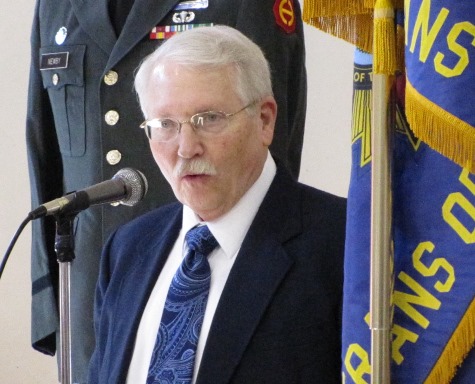by Ariana Figueroa, Kansas Reflector
Washington — U.S. Senate Majority Leader Chuck Schumer on Tuesday stressed that Democrats are prepared to change Senate rules to pass voting rights legislation — and linked the move to the attack on the U.S. Capitol by supporters of former President Donald Trump.
“The election subversion efforts we’re seeing all across the country today are a direct continuation of Jan. 6,” he said at a press conference, referring to Republican state lawmakers who back legislation that imposes stricter voting requirements on their states, following Trump’s defeat. Congress is preparing to mark the one-year anniversary of the Capitol attack on Thursday with speeches and ceremonies.
Schumer’s comments came even as Democratic Sen. Joe Manchin III of West Virginia said earlier in the day that he was opposed to Senate rule changes unless they were bipartisan. Manchin is a key vote for advancement of voting legislation in the evenly divided Senate.
Manchin told reporters that it’s his preference to work with Republicans to come to a bipartisan agreement rather than change Senate rules.
“Being open to a rules change that would create a new direction, it’s very, very difficult,” Manchin said, according to Capitol Hill pool reports.
However, Schumer said that for months Democrats tried to negotiate with Republicans, but he said that Senate Minority Leader Mitch McConnell said that “it’s a bottom line, no one should cooperate on voting rights.”
On the Senate floor, McConnell argued that because the 2020 presidential election had the highest voter turnout, “our democracy is not in crisis.”
“There are senators on both sides who understand that any supposedly limited ‘carve out’ would bring the whole house crashing down,” he said.
Senate Republicans have blocked debate in the Senate on voting rights three times.
“So there is not going to be any kind of bipartisan action, we know that,” Schumer said. “Our caucus is now engaged in active discussions about how we can restore the Senate.”
Schumer also suggested that Manchin is continuing to negotiate on changes in the filibuster.
“There are certain things he won’t go for, but there are certain things he’s talking about,” Schumer said. “Hopefully we can get 50 of us to come to an agreement.”
Current filibuster rules require a 60-vote threshold to advance and pass legislation, rather than a simple majority, and with an evenly divided Senate, Democrats need all of their members on board.
Democratic Sens. Raphael Warnock of Georgia, Jeff Merkley of Oregon, Alex Padilla of California and Senate Rules Committee Chairwoman Amy Klobuchar of Minnesota joined the press conference. Schumer said that Democrats will have a debate on changing rules by Jan. 17, which is also Martin Luther King Jr. Day.
Schumer added that Democrats are working to get Democratic Sen. Kyrsten Sinema of Arizona and Manchin to agree to some type of filibuster carve out specifically to pass voting rights legislation.
Warnock said that Congress is running out of time to pass meaningful voting rights legislation.
“Let me be very clear,” Warnock said. “The elections are still run by the state. We’re just trying to provide a federal baseline that says everybody ought to have access, every American has to have access to the ballot.”
He said in his home state of Georgia, there is currently an effort in the state legislature to eliminate absentee ballot drop boxes in the entire state.
“It’s very clear what the Republican party is up to,” Warnock said. “They are trying to make it harder for some people to vote … and I predict that over the next few days you’re going to hear the same Republicans give a lot of lip service to bipartisanship.”
The Brennan Center for Justice at the New York University School of Law found that from Jan. 1 to Dec. 7 of 2021, at least 19 states passed 34 laws restricting voting access.
“There are solutions to this alarming and unprecedented attack on our democracy,” according to the center. “Congress has the power to take bold action now to protect American voters from the kinds of restrictions enacted this year and the looming threats to voters and elections that may be imposed in 2022 and beyond.”
Sinema has made it clear that under no circumstances will she change her position about carving out filibuster changes to advance any voting rights legislation.
“As she has throughout her time in the U.S. House and Senate, Senator Sinema also continues to support the Senate’s 60-vote threshold, to protect the country from repeated radical reversals in federal policy which would cement uncertainty, deepen divisions, and further erode Americans’ confidence in our government,” her office wrote in a statement, the same one she made in December in response to questions about her position on the filibuster.
Schumer did not specify which voting rights legislation Democrats would try to pass, but several pieces have been introduced.
One that Senate Democrats worked on with Manchin is called the Freedom to Vote act, which would establish Election Day as a national holiday and set minimum standards that each state must have for elections, such as two weeks of early voting and an option for same-day voter registration.
Another piece of legislation, the John Lewis Voting Rights and Advancement Act, would bolster the Voting Rights Act by establishing a new formula to require all 50 states to get special permission from the Justice Department before making any changes to voting laws or putting in place new voting requirements.
Kansas Reflector stories, www.kansasreflector.com, may be republished online or in print under Creative Commons license CC BY-NC-ND 4.0.
See more at https://kansasreflector.com/2022/01/04/voting-rights-tops-u-s-senate-agenda-as-jan-6-anniversary-nears/

